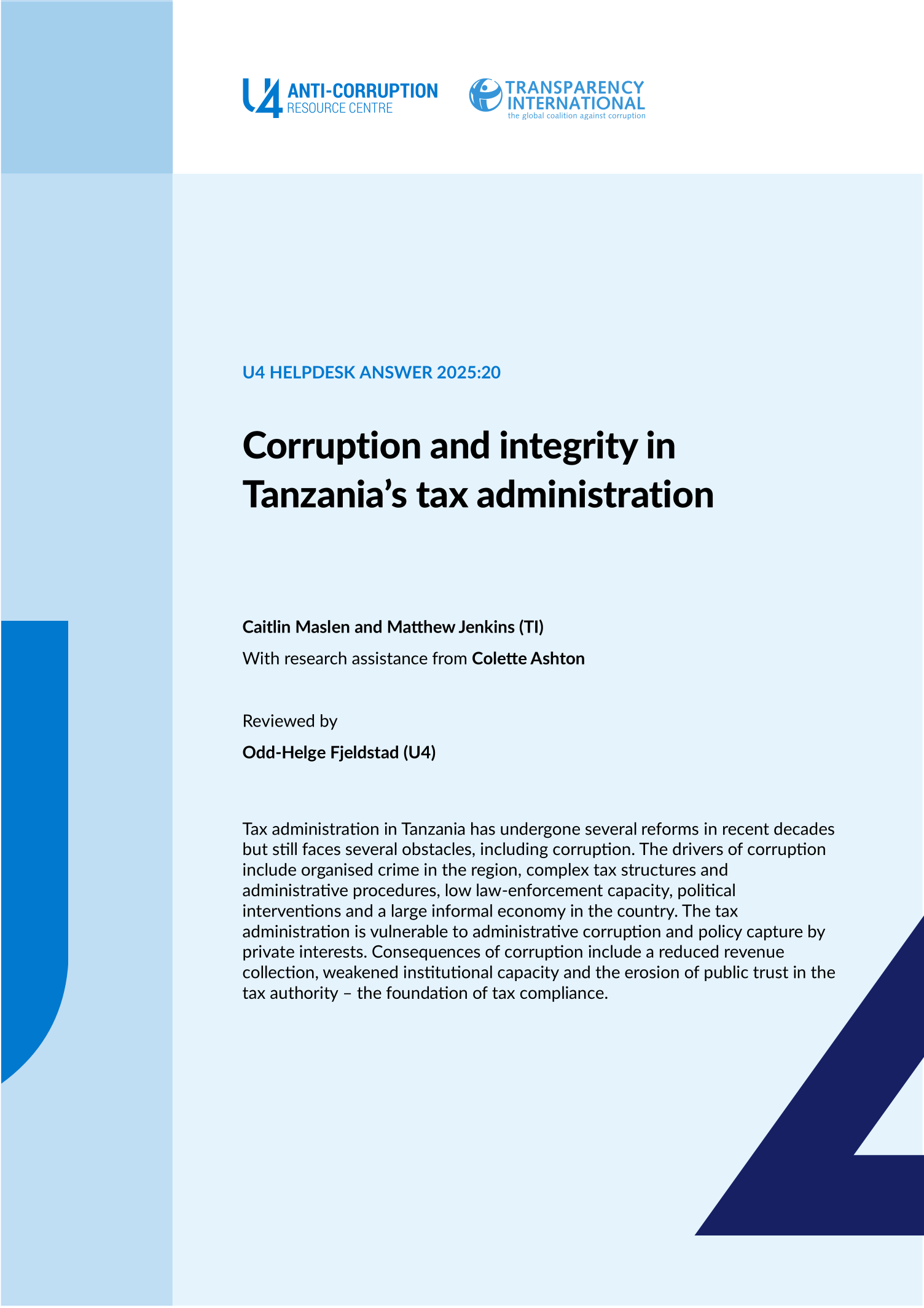Main points
- Tanzania has relatively low rates of revenue collection, and more effective tax collection is imperative to meet development and welfare needs.
- The Tanzania Revenue Authority (TRA) operates in a difficult context for tax administration. Drivers of corruption risk in tax administration include organised crime, the informal economy, complicated tax rules, low law-enforcement capacity and political interventions.
- Complex tax rules combined with heavy-handed enforcement tactics targeting small and medium-sized local enterprises reportedly create incentives for businesspeople to pay bribes to reduce or avoid taxation.
- Tanzania’s geopolitical location along a key trade route for illicit goods from the Middle and Far East to Europe also makes it vulnerable to organised crime that may facilitate customs-related offences, further affecting tax administration.
- The international tax system is not advantageous to low and lower middle income countries, such as Tanzania, which facilitates aggressive corporate tax avoidance by multinationals to the detriment of the national treasury.
- The Tanzania Revenue Authority, like other government and law-enforcement agencies in the region, is at risk of state and policy capture by private interests such as networks of politicians, companies and organised crime networks.
- The most recent Afrobarometer data available for Tanzania from 2024 found that 16.7% perceived ‘most’ or ‘all’ tax officials from the TRA to be corrupt (Afrobarometer 2025:40). This is a notable improvement from 2012, when 38% of Tanzanians expressed the same view (Afrobarometer 2015:33). However, it represents a slight decline from the previous 2022 Afrobarometer round, when only 12.4% of Tanzanians surveyed stated ‘most’ or ‘all’ tax officials from the TRA were corrupt (Afrobarometer 2023: 48).
- This slight uptick in perceived corruption is potentially related to some high-profile protests by shop owners against the TRA in 2023 and 2024, generated by tax related grievances and allegations of corruption by TRA officers (Kyomo and Buhimila 2025:426).
- Improving tax collection in Tanzania requires structural reform of local and international tax rules and collection methods. Integrity measures, capacity building and technological innovations are also needed.


